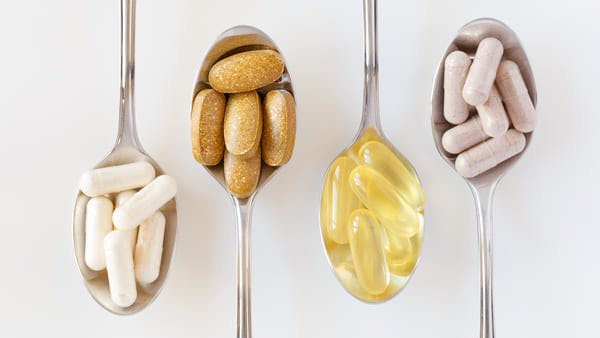What Vitamins Should I Take Daily?
Eating a healthy diet, drinking plenty of water, and exercising on a regular basis: there are a variety of ways to take care of your health through your everyday actions. Should you add taking vitamins to the list? Read this article on what vitamins to take daily, and learn about the best daily vitamins for you and your lifestyle.

Your Health Matters
Without a doubt, life can be hectic. From waking up bright and early to prep the kids for school, to staying up late to meet a deadline at work, our days are often packed from start to finish. However, even during busy times, it’s important to make your health a priority.
It’s tempting to skip cooking a nutritious, home-cooked meal for quick and convenient fast food. Or maybe work has been crazy, and you’re getting ready to pull your first all-nighter since college. Resist these temptations if possible. Always make your health your first priority. Eat a varied diet with nutrient-rich fruits and vegetables. Aim to get eight hours of sleep, and take a break from your normal activities if you’re sick and need time to recover. And now, onto the subject of daily vitamins. If you’re asking yourself “What vitamins should I take daily?” to help mind your health, consulting your doctor for advice is the first step you should take. We’re here to help too! Read on to learn more about daily vitamins.
Do You Need to Take Daily Vitamins?
Vitamins and minerals are essential to your health. They plan an important role in how your body functions, such as helping your body convert the food you eat into energy. i Do you need to take a multivitamin or dietary supplement in order to get the vitamins and nutrients you need? That depends on your dietary intake and medical history. According to the FDA, most people can get the vitamins they need through the foods they eat.ii However, multivitamins can play a vital role when nutritional requirements cannot be met with food alone. For example, your doctor might recommend you take a multivitamin if you follow a restrictive diet, such as a vegan diet.iii And sometimes, we know how we should eat, but we don’t always eat as we should—this is situation in which a daily vitamin might be helpful.
Another factor to consider is age. Sometimes, older adults need more vitamins and minerals than younger adults too, so a dietary supplement might be a desirable option. Some examples of vitamins and nutrients that are beneficial to older adults include:iv
• Calcium, which helps support bone health
• Vitamin D, as our bodies may be less efficient at making vitamin D as we get older
• Vitamin B12, since our bodies may have a harder time absorbing this vitamin from food as we get older
The bottom line: older adults can get vitamins or nutrients through their diet. However, if you feel you could benefit from taking a daily vitamin, consult your doctor.
What Vitamins to Take Daily
If you’ve decided you would like to supplement your diet with a daily vitamin, there are plenty of great options to consider. If you aren’t lacking in any specific nutrient and would like to take a holistic approach to upping your vitamin and mineral intake, consider a multivitamin.
In order to determine what dietary supplement you need, take a look at the vitamins and nutrients your diet is missing. If you don’t always eat a well-rounded diet rich in vitamins and nutrients your body needs, a dietary supplement might be a good option for you. Other common supplement options include:v
• Folate and folic acid, especially if you’re pregnant
• Vitamin D, if you don’t eat enough fish or get little to no sun exposure
• Vitamin B6, which helps regulate sleep, appetite, and mood
• Vitamin B12, which is harder for our bodies to absorb as we get older
• Vitamin A, which can help support our vision
How to Start Taking Vitamins
If you’re asking yourself, “What vitamins should I take daily?” but you’re not sure where to start, consult your doctor. When it comes to vitamins, safety comes first. It is possible to overdo it with certain vitamins and nutrients, so we recommend you discuss the topic with your doctor before starting anything new.
Vitamins and supplements come in many shapes and forms, from pills, to gummies to chewables to liquid, and more. Pick the type that appeals most to you, and you’ll be ready to start supplementing your diet—making your health a top priority—in no time.










